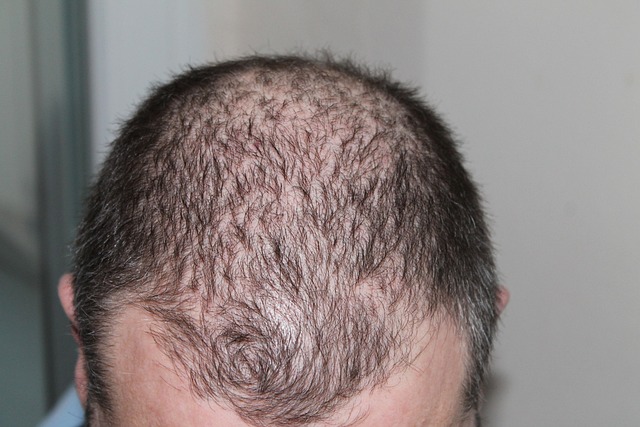How Long Does it Take for Hair to Grow Back? ===
Hair loss is a common issue that affects both men and women, with many people wondering how long it takes for hair to grow back. The answer to this question is not straightforward, as there are several factors that can affect hair growth rates. In this article, we will explore the process of hair growth, the factors that affect it, and some tips to promote faster hair growth.
Understanding Hair Growth Cycles
Hair growth is a continuous process that occurs in cycles. There are three phases of the hair growth cycle: anagen, catagen, and telogen. The anagen phase is the active growth phase, where the hair follicle is producing new hair cells. The catagen phase is a transitional phase, where the hair follicle stops producing new cells, and the hair shaft is pushed up towards the surface of the skin. The telogen phase is the resting phase, where the hair shaft is shed, and the hair follicle prepares for the next anagen phase.
Factors Affecting Hair Growth
Several factors can affect hair growth rates, including age, genetics, hormones, diet, stress, and medications. Age and genetics play a significant role in hair growth, with hair growth rates slowing down as we age. Hormones, such as testosterone and estrogen, can affect hair growth in both men and women. A poor diet, high stress levels, and certain medications can also slow down hair growth.
Average Hair Growth Rates
The average hair growth rate is about half an inch per month, or six inches per year. However, this can vary depending on several factors, such as the phase of the hair growth cycle, age, genetics, and health. The anagen phase can last anywhere from two to six years, with longer anagen phases resulting in longer hair length.
How to Promote Hair Growth
There are several things you can do to promote hair growth, such as maintaining a healthy diet, reducing stress levels, avoiding harsh hair treatments, and using hair growth products. A healthy diet rich in vitamins and minerals, such as biotin, zinc, and iron, can help promote hair growth. Reducing stress levels can also help prevent hair loss and promote hair growth. Avoiding harsh hair treatments, such as perms and color treatments, can prevent damage to the hair follicles. Using hair growth products, such as shampoos and serums, can also help promote hair growth.
Common Myths About Hair Growth
There are many myths about hair growth, such as cutting your hair can make it grow faster, brushing your hair 100 times a day can stimulate hair growth, and using hair growth products can cause hair to grow back thicker. These are all false. Cutting your hair does not affect hair growth rates, as hair growth occurs at the scalp. Brushing your hair excessively can actually cause hair breakage and damage, which can slow down hair growth. Using hair growth products can only promote hair growth, not cause it to grow back thicker.
Tips for Faster Hair Growth
If you want to promote faster hair growth, there are several tips you can follow, such as massaging your scalp, using essential oils, and taking hair growth supplements. Massaging your scalp can help stimulate blood flow to the hair follicles, promoting hair growth. Essential oils, such as peppermint and rosemary, can also help promote hair growth when applied to the scalp. Hair growth supplements, such as biotin and collagen, can help promote healthier hair growth.
Hair Regrowth After Hair Loss
Hair regrowth after hair loss can take several months to a year, depending on the cause of the hair loss. Hair loss can be caused by several factors, such as genetics, hormonal imbalances, and medical conditions. Treatments for hair loss, such as hair transplant surgery and medications, can help promote hair regrowth.
Recovery Time for Hair Transplantation
The recovery time for hair transplantation can vary depending on the extent of the procedure. Most people can return to work within a few days after the procedure, but it may take several weeks for the transplanted hair to fully grow in. Following the post-operative instructions provided by your surgeon can help speed up the recovery process.
Hair Growth After Chemotherapy
Hair growth after chemotherapy can take several months to a year, depending on the type and dosage of chemotherapy received. Hair may grow back thinner or differently than before chemotherapy, but it will eventually grow back to its normal state. Using hair growth products and maintaining a healthy diet can help promote faster hair regrowth.
When to See a Doctor
If you are experiencing sudden or excessive hair loss, it is important to see a doctor. Hair loss can be a sign of an underlying medical condition or hormonal imbalance. A doctor can help determine the cause of your hair loss and recommend appropriate treatments.
Patience is Key to Hair Regrowth===
Hair growth is a natural process that can take time. It is important to be patient and take care of your hair to promote healthy hair growth. Maintaining a healthy diet, reducing stress levels, and avoiding harsh hair treatments can all help promote faster hair growth. Remember to consult a doctor if you are experiencing sudden or excessive hair loss. With patience and care, you can help promote healthy hair growth and regrowth.

